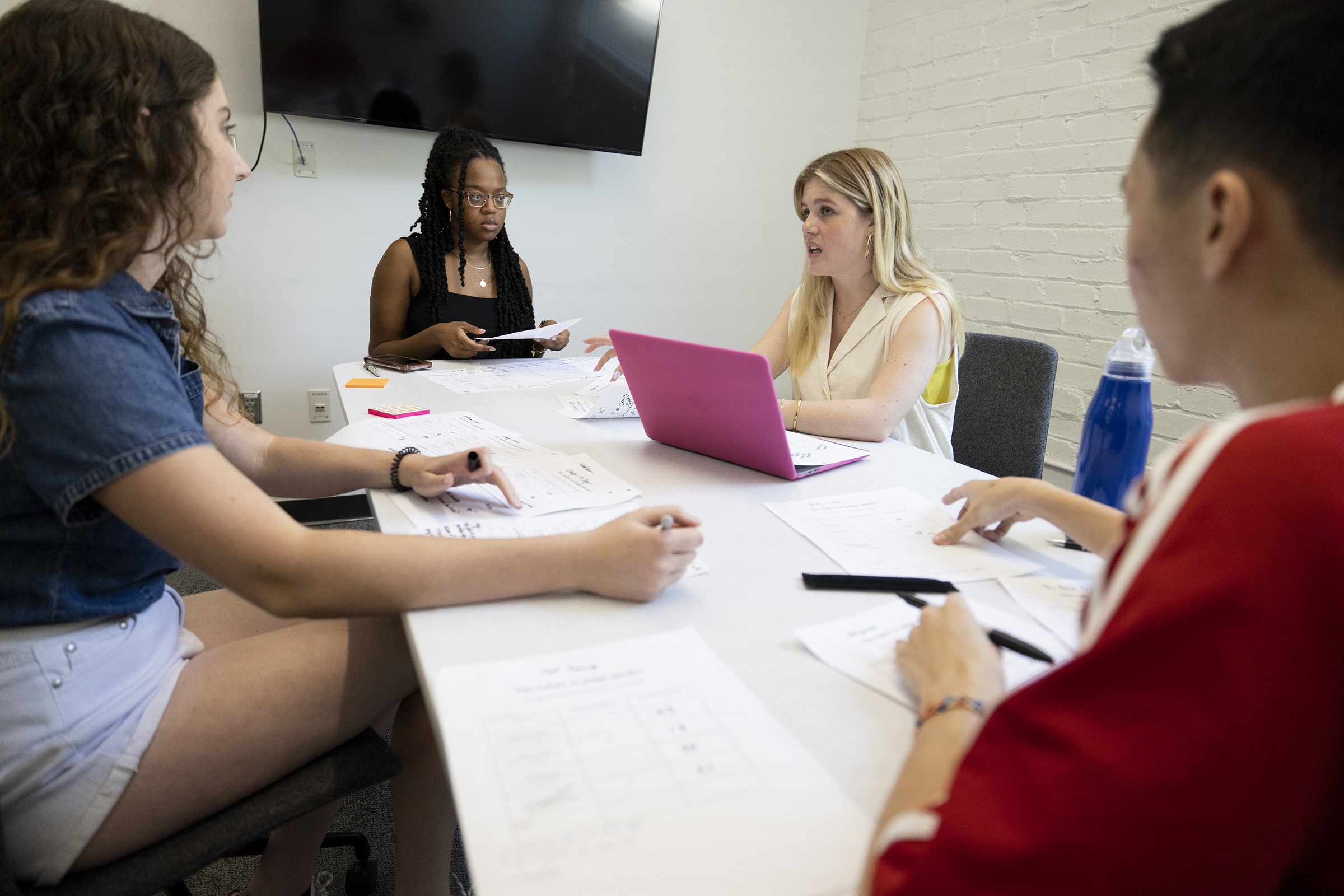How to Serve as a Remediation Peer Educator

Undergraduate and graduate students who are interested in promoting academic integrity and practicing restorative justice can serve as Remediation Peer Educators during Restorative Justice Conferences. In these meetings, they will represent UGA's student body as a party that was harmed by cheating (alongside a Remediation Faculty Representative who will represent UGA's body of instructors and UGA as an institution as harmed parties).
Restorative Justice Conferences serve the purpose of bringing together students who have caused harm to the academic community by committing academic misconduct and the two parties that have been harmed by their actions — students and instructors. Remediation students will talk about their individual cases, reflect on the reasons and circumstances that led them to commit academic misconduct, and determine steps they can take to repair their damaged integrity and the harm they have caused. Remediation Peer Educators will
- help remediation students understand how academic misconduct hurts other students
- propose and/or agree on specific steps remediation students should/want to take to repair the harm they have caused
- give helpful advice on how they can engage in professional development.
Remediation Peer Educators need to be able to listen carefully, put themselves in the shoes of remediation students, and support them in their efforts to undergo positive personal development and make amends to the academic community. They need to be trustworthy, supportive, non-judgmental, committed to restorative justice, and have a deep interest in helping other students engage in professional development.
As preparation for their role, candidates will undergo a three-part training series which includes the following workshops and discussion topics:
1) Basics of Academic Integrity
- What is the Remediation Program?
- What is academic integrity?
- Who is hurt by cheating, and how?
- Why do students cheat?
2) Being a Remediation Peer Educator
- What attitudes and commitments must Remediation Peer Educators have?
- What is Restorative Justice?
- How can we help remediation students?
- How can we deal with conflict?
3) Participating in Restorative Justice Conferences
- How can we build trust with remediation students?
- What questions need to be asked in a Restorative Justice Conference?
- How can we help remediation students understand that cheating hurts other students?
- How can we support remediation students in determining their personal learning objectives?
- What can we learn from previous remediation cases?
Remediation Peer Educators should expect a time commitment of 2 to 4 hours per month (1-2 Restorative Justice Conferences).
If you are interested in becoming a Remediation Peer Educator, please contact the Office of Academic Honesty at honesty@uga.edu. We are looking forward to work with you!
